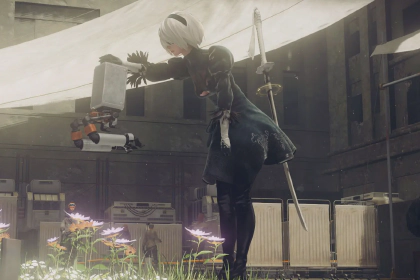
Civilization Ⅵ Analysis and Improvement Scenarios
Author:Great Scientist Ziming Wang
Contents
1. Highlights Design
1.1 Leaders, Winning Conditions, and Advent Decisions
Civilization Ⅵ offers players six ways to win the game: technological victory, conquest victory, cultural victory, diplomatic victory, religious victory, and score victory. Players can take on the role of various historical leaders, each with different abilities, characteristics, and enhanced armies. Players should take advantage of the leader’s strengths in one area (military, technology, culture, religion, diplomacy) to gain an advantage. This advantage will be expanded and eventually turned into a victory.
Decision-making is a game action that the player needs to always make during the game: each turn the player must carefully consider the next direction of development, the defense against barbarians, the research route of the technology tree, the culture tree, the change of political system, etc. Many things take many turns to realize (building construction, technology research, etc.). Many things take many turns to complete (building construction, technology research, etc.), and during this time the player needs to react to changes in the field (such as an enemy attack or a spectacle being completed by the enemy first) to ensure that player is not left behind or overtaken by the enemy.
1.2 Technology Tree and Culture Tree
The most important thing to talk about in the tech and culture trees is the upgrade conditions: most of the tech and culture objectives have upgrade conditions, and if an objective with upgrade conditions can be achieved, the system will reward the player with half of the tech/culture value needed to complete this objective. And each goal can be interrupted at any time, so players can make full use of this mechanism: for goals that currently fail to reach the upgrade condition but want to complete, they can spend half of their turns on research first, and then switch to other goals, and then automatically get the goal when the upgrade condition for this goal is achieved later. This saves a large number of turns for researching other technological and cultural objectives, staying one step ahead of others.
1.3 Resources
Each plot of land on the map of Civilization Ⅵ has resource outputs, and each resource has a different purpose: food is used to boost the population, population size and productivity together determine the efficiency of production, technology and culture determine the research speed of technology and cultural goals, money and faith determine the player’s money and faith income per turn, and luxury goods provide town livability. Players need to choose plots of land suitable for their strategic goals to occupy and colonize to quickly expand and establish advantages.
In addition to the regular resources mentioned above, there are also some hidden strategic resources on the map, such as horses, iron, coal, oil, uranium, etc. These resources will not be shown on the player’s plot until the corresponding technology goal for research is completed, and some powerful troop types require the player to have a certain number of strategic resources to produce, so these strategic resources are also one of the points of contention for each player.
2. Improvement Scenarios
2.1 Combat
Civilization Ⅵ combat units, except for some special soldier mechanics, the rest of the design is very mediocre: the way it fights: attacking party attack + favorable bonus - enemy defense - unfavorable factors. The difference between the combat power of each contemporaneous unit is not large, which makes the combat experience in the middle and later stages of the game poor (we use the infantry of modern civilization to attack the enemy’s cavalry, and as a result, our injuries are not very small), the reason for this is that it does not meet the player’s expectations (Genghis Khan with gunpowder had fought in Europe, the U.S. atomic bomb destroyed Hiroshima and Nagasaki in Japan, these leading-age military power in the face of the backward enemy (when often crushed)
I think this problem cannot be solved by a single “higher technology level in the engagement of soldiers to get a bonus to combat power” mechanism: this will lead to the speed of technological research to become the key to conquering the enemy, and will lead to conquest victory becomes an accessory to technological victory: technology is the first productive force, which will undoubtedly destroy the game Strategy. I think we can try to start from the exclusive ability of each combat unit: give some exclusive ability to the soldiers of high-tech level, which can be passive or active skills. For example, the riflemen are given the passive skill of armor-breaking: reducing the defense of the attacked enemy unit by 5 points, and the active skill of stone thrower incendiary: each unit can only be used once, causing a burning effect on the hit enemy unit and losing 10 life points at the beginning of each turn. The higher the level of technology, the more powerful the skills can be designed so that you can avoid the pitfalls of technology on the battlefield is too high, but also provide players with a certain combat strategy, the production of easy to cooperate with the soldier to achieve combat advantage.
2.2 Religion
In my summary of the experience, religious victory is the easiest and most boring: players consume religious points to buy missionaries and move them to the enemy’s country to preach, when a town has the most people of the envelope player’s denomination, our denomination becomes the mainstream denomination of the town, the town is equivalent to our “occupation “. A religious victory is achieved when more than half of the enemy’s towns are converted to our denomination. Therefore, the player who chooses the religious victory only needs to keep sending out missionaries and believers to preach as long as he is safe to achieve victory without bloodshed. If other denominations are in the way, you can also send inquisitors to clear out the infidels (i.e., clear the town of people of other denominations so that most of the population is our own).
The biggest problem with this gameplay is that it is too passive and less strategic. Players only need to keep cultivating missionaries, they don’t need to pursue more progress in technology and culture, as long as they can protect the land. I think exclusive religious goods (e.g., Buddha beads, praise beads, crosses) should be designed, and players can transmit these goods to each town through merchants. In this way, it can be easier to preach and get a good income of gold to protect themselves. Religious goods are processed by the player’s town and their production is determined by the productivity of the player’s town.
Religion should be able to influence diplomacy. When country A is of our sect and country B is of another sect, we can use diplomacy to sow discord between the two countries on the grounds of different beliefs to buy missionary time for us and slow down the enemy’s attack.





